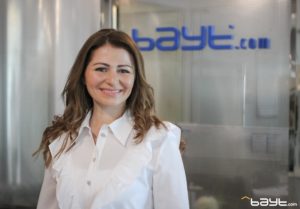82% Of UAE Professionals Consider Career Development Very Important
A new survey conducted by Bayt.com, the Middle East’s #1 job site, and market research agency, YouGov, revealed that 82% of UAE professionals consider career development very important. The 2021 Bayt.com Career Development in the MENA survey seeks to understand where organizations are in creating a mutually beneficial career development process, the barriers to success and the changes planned to meet the needs of both the organization and employees.
Career development can play a pivotal role in reaching business objectives, as well as drive higher employee engagement. According to the data obtained, employees state that online courses (53%),certified study programs (51%), and company training by external professional trainers (51%)are the most preferred training methods.
Prospective employees see career development as among the most important reasons to stay with an organization. According to the survey, 75%of professionals would leave their current company for better training opportunities. Additionally,100% of respondents would like to have a formal career development plan.
Ola Haddad, Director of Human Resources at Bayt.com said: “Career development and progression is an important factor for MENAprofessionals. Businesses that fail to communicate and deliver on development opportunities and career progression are at risk of losing top talent. Our survey highlights how professionals are actively learning and developing themselves to achieve greater results and how businesses are striving to develop a more highly skilled workforce.”
The journey towards career development
UAEprofessionals take a broad view of their own career development. This can include everything from looking for ways to become more efficient in performing current responsibilities to training and activities in the context of a potential or future role.
The survey revealed that 62% of respondents believe that there are opportunities to cross train and learn new skills, and 64% believe that the training and development opportunities are explicitly linked to the strategic direction of the company.
Having a mentor is critical to professionals’ careers, helping them to grow, learn, and excel at their profession. In the UAE, 53% state that their supervisor has taken an interest in their career development, 57% are satisfied with the mentoring received from senior peers, and 51% believe that their organization is dedicated to their professional development.
Beyond mentoring from a colleague, professionals look for a variety of developmental opportunities within their organizations. Almost9 in 10 respondents are trying to identify learning opportunities inside and outside of their company.
In addition, 73% feel encouraged to take initiative in determining their own career development. On the other hand, almost 6 in 10 (58%) know what the career development philosophy of their company is and what their role is in the development process.
In terms of challenges faced by professionals in an effort to develop their careers, lack of motivation (40%), followed by stress/ burnout/ inability to focus(36%) are the most mentioned internal barriers for career development. When it comes to external barriers, unclear definition of career advancement criteria in one’s company and lack of training provided by the company (bo that 42%) emerge as the top barriers for career development.
Zafar Shah, Research Director at YouGov said: “Our new survey aimed to shed light on MENAprofessionals’ career development within their organization,as well asthe strengths and weaknesses of the efforts towards their career development. The results of the survey will be used to inform organizations about their effectiveness regarding employees’ career development.”
Data for the 2021 Bayt.com Career Development in the MENA was collected online from February 11 to 28, 2021. Results are based on a sample of 1,506 respondents from countries including the UAE, Saudi Arabia, Kuwait, Oman, Qatar, Bahrain, Lebanon, Jordan, Iraq, Palestine, Syria, Yemen, Egypt, Morocco, Algeria, Tunisia, Libya and Sudan among others.








 Email: info@cyber-gear.com
Email: info@cyber-gear.com